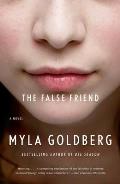 The False Friend by Myla Goldberg
The False Friend by Myla Goldberg
Lured by
The False Friend's synopsis, I expected the novel to be something that it's not. It is short, spare, and well-written. The novel deals with childhood bullying, the unreliable nature of memory, and how difficult it is to know those closest to us. Its revelations are myriad, but they come from unexpected quarters. I have to admit that I found
The False Friend unsatisfying. I found the protagonist increasingly unsympathetic and the ending unsatisfying (even though I understand why Goldberg ended the novel the way that she did).
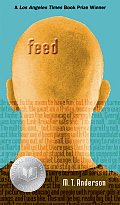 Feed by M.T. Anderson
Feed by M.T. Anderson
Set in a dystopian future where the internet is hardwired to everyone's brain. Anderson incorporates interruptions by targeted advertizing into the narrative to help readers understand the experience of being plugged into the feed. If I had been reading
Feed, I would have skipped over those sections, limiting the annoyance factor, but I listened to the audio version, which forced me to fully experience these tics in the narrative.
Feed is a cautionary tale, much darker than a lot of the books that have been pushed out during this craze for dystopian (young adult) fiction.
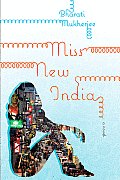 Miss New India by Bharati Mukherjee
Miss New India by Bharati Mukherjee
A bildungsroman that explores the theme of "the New India" (a descriptor I find a bit perplexing). Anjali (Angie) Bose runs away from home and an arranged marriage assisted by an expatriate American teacher who believes in her potential for a better life than small town Gauripur can offer her. Angie travels to Bangalore where she muddles along, though a series of increasingly unbelievable amount of plot twists, almost in spite of herself. The highlight of
Miss New India is its cast of secondary characters.
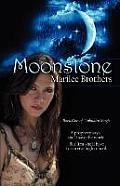 Moonstone and Moon Rise by Marilee Brothers
Moonstone and Moon Rise by Marilee Brothers
I only read the first two installments of Marilee Brothers'
Unbidden Magic series even though I had a review set of all four titles (
Moonstone,
Moon Rise,
Moon Spun, and
Shadow Moon). I found
Moonstone to be a somewhat standard teen paranormal romance: nothing to write home about, but interesting enough to continue with the series considering the fact that I already had the next book at hand.
Moon Rise, however, opens with a serious series fiction infraction: the love interest from book one (who, I might add, was a more interesting character than the protagonist herself) is inexplicably missing in action allowing both author and protagonist to cultivate a new love interest more in line with the second installment's storyline. I hate when authors do this: throwing out all the work they did getting their readers invested in a relationship. I finished
Moon Rise--which, I should add in Brothers' defense, does end with a teeny bit of explanation about the absence of
Moonstone's love interest--but I had no desire to continue on with the series.
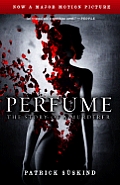 Perfume: The Story of Murderer by Patrick Sueskind
Perfume: The Story of Murderer by Patrick Sueskind
translated from the German by John E. Woods
I've been meaning to read
Perfume for ages. It was first published in 1985 and I've had a copy on my bookshelf for at least four years. An olfactory-genius serial killer in 18th century France. The pacing is slow (sometimes excruciatingly so), but the language (particularly Suskind's ability to put smells into words) is wonderful. What I found most interesting were the descriptions of craft of perfumerie: the process for making absolutes and the like.
disclosure: I received a review copy of Moonstone and Moon Rise from Bell Bridge Books via NetGalley.
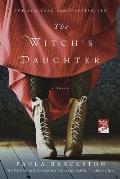 I've had The Witch's Daughter loaded on my pocket electronic device for the last little while. I've listened to it while commuting and shoveling snow, and most recently while suffering from the flu and not having the energy to do much anything else.
I've had The Witch's Daughter loaded on my pocket electronic device for the last little while. I've listened to it while commuting and shoveling snow, and most recently while suffering from the flu and not having the energy to do much anything else.

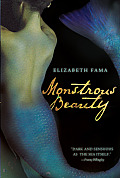 In the early 1870s in Plymouth, Massachusetts, a mermaid named Syrenka falls in love with a young naturalist and decides to give up her immortality for a life on land with him. In modern day Plymouth, 17-year-old Hester disdains love because generations of her female ancestors (including her own mother) have died shortly after the birth of their first child. It is only after Hester meets the magnetic Ezra that she realizes just how naive her romance-avoidance plan was. At the suggestion of Ezra, Hester begins to research her family history in the hope of determining the true cause of the postpartum deaths and whether there's a way she can avoid her own.
In the early 1870s in Plymouth, Massachusetts, a mermaid named Syrenka falls in love with a young naturalist and decides to give up her immortality for a life on land with him. In modern day Plymouth, 17-year-old Hester disdains love because generations of her female ancestors (including her own mother) have died shortly after the birth of their first child. It is only after Hester meets the magnetic Ezra that she realizes just how naive her romance-avoidance plan was. At the suggestion of Ezra, Hester begins to research her family history in the hope of determining the true cause of the postpartum deaths and whether there's a way she can avoid her own.
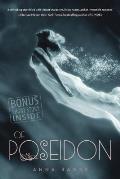 While there is a disturbing scene early in
While there is a disturbing scene early in 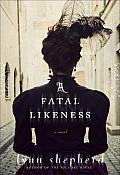 In the third installment of her literary mystery series featuring thief-taker1 Charles Maddox,2 Shepherd seeks to fill the "inexplicable gaps and strange silences" (8) in the biographical record of the Young Romantics. The action of the novel begins when Charles Maddox is summoned to Sir Percy Shelley (son of Percy Bysshe and Mary) and asked to spy on someone claiming to have some of the famous poet's private papers for sale. The more Maddox learns about the assignment and his clients, the more complicated things begin to seem and the less altruistic their decision to employ him.
In the third installment of her literary mystery series featuring thief-taker1 Charles Maddox,2 Shepherd seeks to fill the "inexplicable gaps and strange silences" (8) in the biographical record of the Young Romantics. The action of the novel begins when Charles Maddox is summoned to Sir Percy Shelley (son of Percy Bysshe and Mary) and asked to spy on someone claiming to have some of the famous poet's private papers for sale. The more Maddox learns about the assignment and his clients, the more complicated things begin to seem and the less altruistic their decision to employ him.
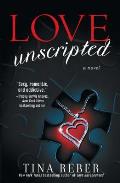 female lead: Small-town Rhode Island bar owner
female lead: Small-town Rhode Island bar owner 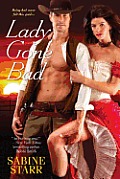 setting: 1880s Texas
setting: 1880s Texas 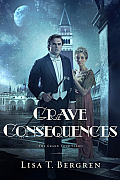 setting: Europe, circa 1913
setting: Europe, circa 1913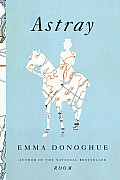 [F]or the past decade and a hlaf, I've been writing stories about travels to, within, and occasionally from the United States and Canada. Most of these travelers are real people who left traces in the historical record; a few are characters I invented to put a face on real incidents of border crossing. Many of them stray in several sense, when in the course of their journeys across geographical and political boundaries they find themselves stepping over other ones: law, sex, or race. Emigrants, immigrants, adventurers, and runaways--they fascinate me because they loiter on the margins, stripped of the markers of family and nation; they're out of place, out of their depth. (Afterword, 263)
[F]or the past decade and a hlaf, I've been writing stories about travels to, within, and occasionally from the United States and Canada. Most of these travelers are real people who left traces in the historical record; a few are characters I invented to put a face on real incidents of border crossing. Many of them stray in several sense, when in the course of their journeys across geographical and political boundaries they find themselves stepping over other ones: law, sex, or race. Emigrants, immigrants, adventurers, and runaways--they fascinate me because they loiter on the margins, stripped of the markers of family and nation; they're out of place, out of their depth. (Afterword, 263)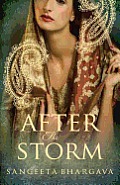
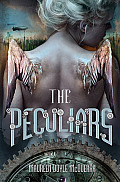
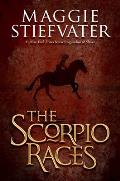
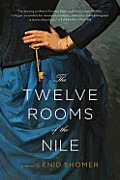 This is a work of fiction inspired by real people. Though I have hewed close to the facts, I have also taken liberties with them. [...] Flaubert and Nightingale did indeed tour Egypt at the same moment with nearly identical itineraries, but as far as we know, they never met. However, the historical record does suggest that they glimpsed each other in November 1849 while being towed through the Mahmoudieh Canal from Alexandria to Cairo. (449)
This is a work of fiction inspired by real people. Though I have hewed close to the facts, I have also taken liberties with them. [...] Flaubert and Nightingale did indeed tour Egypt at the same moment with nearly identical itineraries, but as far as we know, they never met. However, the historical record does suggest that they glimpsed each other in November 1849 while being towed through the Mahmoudieh Canal from Alexandria to Cairo. (449)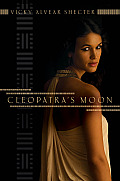
 The twin empires of Egypt and Rome mingle and clash in this towering tragedy. Impulsiveness, passion, mistaken identity and dark humor all color the fascinating dalliance between Antony and Cleopatra, the larger-than-life pair at the center of this play.
The twin empires of Egypt and Rome mingle and clash in this towering tragedy. Impulsiveness, passion, mistaken identity and dark humor all color the fascinating dalliance between Antony and Cleopatra, the larger-than-life pair at the center of this play.




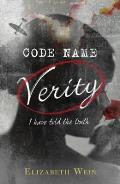
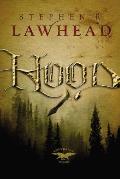
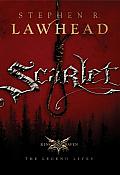
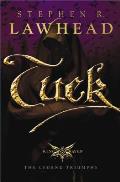
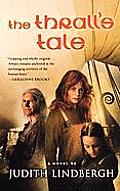
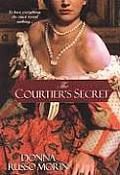 17-year-old Jeanne Du Bois was sent off to a convent seven years ago. When the sisters tire of her insolence, Jeanne is returned to court (Louis XIV's at Versailles). Stifled by the restrictions of life as a female courtier, Jeanne spends what free time she has eavesdropping on the palace's school room and sneaking off to fencing lessons with her uncle.
17-year-old Jeanne Du Bois was sent off to a convent seven years ago. When the sisters tire of her insolence, Jeanne is returned to court (Louis XIV's at Versailles). Stifled by the restrictions of life as a female courtier, Jeanne spends what free time she has eavesdropping on the palace's school room and sneaking off to fencing lessons with her uncle.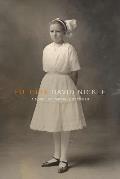 Subtitled "a novel of terrible optimism,"
Subtitled "a novel of terrible optimism," 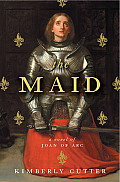 She looked up at her saints in the stained-glass windows, Saint Catherine, Saint Margaret, Saint Clare... those tall, sad, lovely women illuminated by the sun. She though of their enormous love for God, their heroic lives, their miracles. How they'd found a way to be bigger, better, to do good, fight evil, escape the mud, the smallness of life. She thought they were the luckiest people in the world. (32)
She looked up at her saints in the stained-glass windows, Saint Catherine, Saint Margaret, Saint Clare... those tall, sad, lovely women illuminated by the sun. She though of their enormous love for God, their heroic lives, their miracles. How they'd found a way to be bigger, better, to do good, fight evil, escape the mud, the smallness of life. She thought they were the luckiest people in the world. (32)
